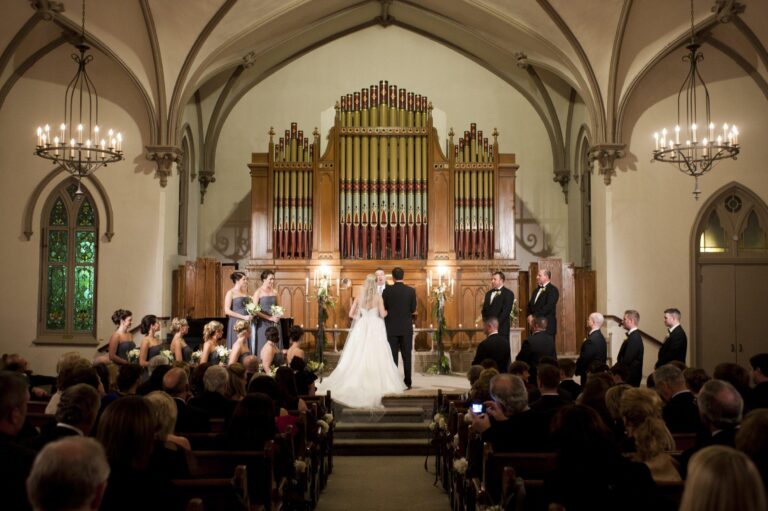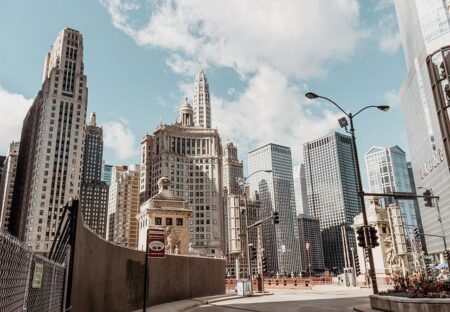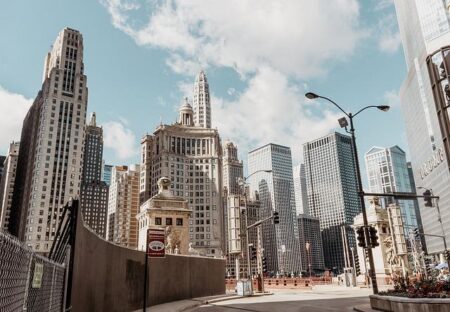West Loop’s Historic Church Hits the Market Amidst Neighborhood Transformation
Situated on the cusp of Chicago’s bustling West Loop, a distinguished historic church renowned for its architectural elegance and multifunctional use has recently been placed on the market. This landmark, which has hosted a diverse array of events over the years, is drawing considerable interest from developers and investors eager to engage with the area’s dynamic urban evolution. As the West Loop solidifies its reputation as a thriving center for culinary innovation,commerce,and cultural experiences,this property stands out as a prime asset within the city’s competitive real estate arena.
Developers are particularly attracted by the following attributes:
- Generous interior spaces adaptable for a variety of mixed-use developments
- Excellent connectivity to public transportation and major city arteries
- Preserved historic elements including intricate stained glass and detailed masonry
- Pre-approved permits facilitating both commercial and residential redevelopment
| Attribute | Details |
|---|---|
| Construction Year | 1892 |
| Current Function | Event Venue |
| Property Size | 0.75 acres |
| Zoning Designation | Commercial and Residential Mixed-Use |
Timeless Architecture Meets Contemporary Event Facilities
Located at the vibrant threshold of the West Loop, this historic church-turned-event venue harmoniously combines classic architectural beauty with modern amenities. The soaring vaulted ceilings and original stained glass windows imbue the space with a distinctive ambiance,while cutting-edge lighting and sound technologies ensure flawless event execution. Its expansive floor plan supports a wide spectrum of gatherings, from corporate conferences to elegant weddings, positioning it as a versatile and sought-after venue within Chicago’s competitive event market.
Noteworthy features include:
- Large main hall with configurable seating to accommodate diverse event formats
- Commercial-grade kitchen designed for full-service catering operations
- Separate lounge and bar areas that blend modern comfort with historic charm
- ADA-compliant access and ample parking facilities addressing urban accessibility needs
| Facility Feature | Specification |
|---|---|
| Guest Capacity | Up to 350 attendees |
| Technology | Integrated audiovisual system with live-streaming capabilities |
| Location Benefits | Close to public transit and renowned West Loop dining destinations |
| Preservation Status | Officially designated local landmark with ongoing restoration incentives |
Zoning and Preservation Guidelines: Essential Considerations for Interested Buyers
Potential purchasers must carefully navigate the stringent zoning regulations governing the West Loop area. As the property lies within a designated historic district, any proposed modifications or new uses are subject to rigorous oversight. Compliance with municipal zoning codes and preservation ordinances is mandatory, often limiting extensive exterior alterations and mandating the retention of key architectural features.
Important factors to evaluate include:
- Permissible uses: Verify that intended commercial or residential activities align with zoning allowances.
- Preservation approval: Prepare for a complete review process by the city’s landmarks commission for any façade or interior changes.
- Advancement constraints: Understand restrictions on building height and density to maintain neighborhood character.
| Regulatory Element | Effect on Buyer |
|---|---|
| Zoning Classification | Determines allowable property uses and tenant types |
| Historic Preservation Status | Mandates approval from landmarks commission for alterations |
| Exterior Modifications | Strict limits to preserve architectural integrity |
Adaptive Reuse in the West Loop: A Flourishing Investment Trend
Adaptive reuse projects have gained momentum as savvy investors seek to merge sustainability with profitability. Historic properties, such as churches and warehouses, offer unique character and prime locations that new constructions often cannot match. The West Loop’s periphery has become a hotspot for such transformations, with many old buildings repurposed into event venues, coworking spaces, and mixed-use developments. This movement aligns with broader urban trends emphasizing cultural preservation, environmental duty, and the demand for experiential spaces that serve Chicago’s vibrant creative and business communities.
Market indicators highlighting this trend include:
- Historic district property values rising faster than the citywide average
- Increased rental rates for repurposed commercial real estate
- Growth in consumer spending on hospitality and event services
| Metric | 2019 | 2023 | Forecast 2025 |
|---|---|---|---|
| Average Sale Price ($/sq ft) | 215 | 280 | 320 |
| Occupancy Rate (%) | 78 | 91 | 95 |
| Event Venue Demand Growth | +12% | +27% | +35% |
These economic and cultural dynamics underscore the lucrative potential for investors aiming to capitalize on Chicago’s evolving real estate market. The availability of landmark properties like this church offers a rare chance to blend historic preservation with contemporary commercial success, marking adaptive reuse as a pivotal element in the city’s ongoing urban revitalization.
Conclusion: The Future of a West Loop Historic Landmark
As this historic church on the edge of the West Loop becomes available, its destiny remains open to interpretation. Having served both as a spiritual sanctuary and a distinctive event venue, it represents a unique opportunity for buyers interested in harmonizing heritage with modern functionality in one of Chicago’s most rapidly developing neighborhoods. Stakeholders-from investors to community advocates-will be closely monitoring how this iconic structure is preserved, adapted, or reimagined in the years to come.





